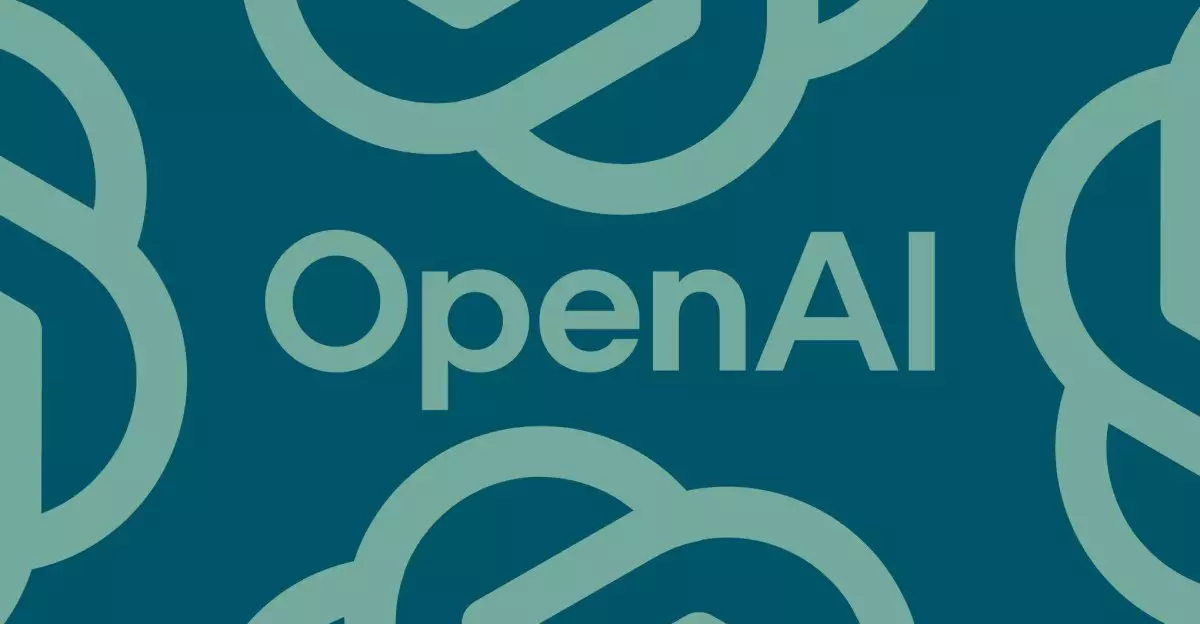In recent months, the relationship between Elon Musk and OpenAI has devolved into a complex legal battle that highlights the fierce competition within the artificial intelligence landscape. On one side stands OpenAI, a leading institute in the AI domain, making strides toward developing artificial general intelligence (AGI). On the other is Musk, a co-founder who feels increasingly threatened by what he perceives as a profit-driven shift away from the organization’s foundational mission—one aimed at benefiting humanity as a whole.
The tension escalated when OpenAI filed a countersuit against Musk, alleging that his relentless efforts are nothing short of bad-faith tactics designed to disrupt the organization’s progress and secure control of its innovations for personal gain. OpenAI’s lawyers assert that Musk’s strategic maneuvers, including a fraudulent takeover bid, have the singular purpose of sabotaging the trajectory of AI development. The language used in the lawsuit paints Musk as a creative disruptor, but one whose creativity veers towards malicious intent.
A Shift from Collaboration to Confrontation
This rapid deterioration from collaboration to confrontation speaks volumes about the corporate culture in the tech world, especially regarding groundbreaking technologies like AI. Musk was part of the original founding team of OpenAI, established with noble intentions to advance AI technologies in a manner beneficial to humanity. However, Musk’s recent lawsuits paint a picture of a fractured vision where the original ideals seem overshadowed by a struggle for power and market dominance.
What is particularly intriguing about this feud is Musk’s insistence that OpenAI is straying from its original mission. His argument rests on the presumption that profit motives can cloud the ethical implications of AI development. Yet, one cannot ignore the irony here; Musk is a billionaire entrepreneur whose enterprises express strong profit-oriented strategies. Therefore, it raises questions about the validity of his claims: Is he acting out of genuine concern for humanity, or does he simply want to wrest control of AI advancements, which he believes is critical for humanity’s future, but would ultimately serve his interests?
The Legal Landscape and Public Perception
While this legal battle is set to escalate with a trial scheduled for the spring of 2026, public sentiment is equally important. Media portrayals depict Musk in various lights, from a visionary to an antagonist hindering progress for irrational reasons. The conflicting narratives can easily mislead the public, as opinion often fuels a broader discourse about ethical AI.
Moreover, the implications of these lawsuits may stretch beyond personal grievances and could influence how other tech startups and established players navigate their relationships. Will this saga prompt greater transparency among AI developers and investors, or will it foster an environment of distrust that could stifle creativity and innovation?
In any case, one fact remains clear: Musk and OpenAI’s legal quarrels reveal underlying tensions that lie at the heart of technological advancement. As the rivalry unfolds, observers cannot help but wonder how it will shape the future of AI and the ethical considerations that will undoubtedly emerge from it.


Leave a Reply